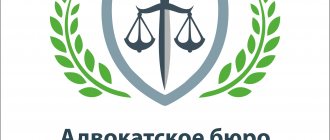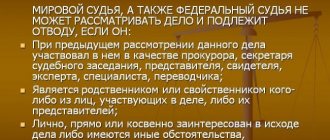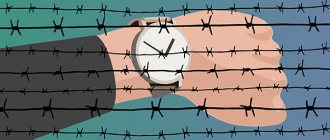1. A civil plaintiff is an individual or legal entity who has filed a claim for compensation for property damage, if there are grounds to believe that this damage was caused to him directly by a crime. The decision to recognize a person as a civil plaintiff is formalized by a court ruling or a decision of a judge, investigator, or inquirer. A civil plaintiff can also file a civil claim for property compensation for moral damage. 2. A civil claim may be brought after the initiation of a criminal case and before the end of the judicial investigation during the trial of this criminal case in the court of first instance. When filing a civil claim, the civil plaintiff is exempt from paying state fees.
3. A civil claim in defense of the interests of minors, persons recognized as incompetent or partially capable in the manner established by civil procedural legislation, persons who for other reasons cannot defend their rights and legitimate interests themselves, may be brought by their legal representatives or a prosecutor, and in defense of the interests of the state - by the prosecutor. 4. A civil plaintiff has the right: 1) to support a civil claim; 2) provide evidence; 3) give explanations regarding the brought claim; 4) file petitions and challenges; 5) give evidence and explanations in his native language or a language he speaks; 6) use the help of a translator for free; 7) refuse to testify against himself, his spouse and other close relatives, the circle of whom is determined by paragraph 4 of Article 5 of this Code. If a civil plaintiff agrees to testify, he must be warned that his testimony may be used as evidence in a criminal case, including in the event of his subsequent refusal to testify; have a representative; 9) get acquainted with the protocols of investigative actions carried out with his participation; 10) participate, with the permission of the investigator or inquiry officer, in investigative actions carried out at his request or at the request of his representative; 11) abandon the civil claim brought against him. Before accepting a waiver of a civil claim, the inquirer, investigator, or court explains to the civil plaintiff the consequences of abandoning a civil claim, provided for in part five of this article; 12) upon completion of the investigation, get acquainted with the materials of the criminal case related to the civil claim brought against him, and write out any information and in any volume from the criminal case; 13) know about decisions made that affect his interests and receive copies of procedural decisions related to the civil claim brought against him; 14) participate in the trial of a criminal case in the courts of the first, second, cassation and supervisory instances; 15) speak in court debates to substantiate a civil claim; 16) get acquainted with the minutes of the court session and submit comments on it; 17) bring complaints against the actions (inaction) and decisions of the inquiry officer, the head of the inquiry unit, the head of the inquiry body, the inquiry body, the investigator, the prosecutor and the court; 18) appeal the verdict, ruling and ruling of the court insofar as it relates to the civil claim; 19) know about the complaints and presentations brought in the criminal case and file objections to them; 20) participate in the judicial consideration of complaints and submissions brought in in the manner established by this Code.
5. A waiver of a civil claim may be declared by a civil plaintiff at any time during the criminal proceedings, but before the court retires to the deliberation room to render a verdict. Refusal of a civil claim entails the termination of proceedings on it.
6. The civil plaintiff does not have the right to disclose the data of the preliminary investigation if he was warned about this in advance in the manner established by Article 161 of this Code. For the disclosure of preliminary investigation data, the civil plaintiff is liable in accordance with Article 310 of the Criminal Code of the Russian Federation.
Article 421 of the Code of Criminal Procedure of the Russian Federation. Circumstances to be established
- When conducting a preliminary investigation and trial in a criminal case of a crime committed by a minor, along with proving the circumstances specified in Article 73 of this Code, the following are established: 1) the age of the minor, day, month and year of birth; 2) the living conditions and upbringing of the minor, the level of mental development and other characteristics of his personality; 3) the influence of older persons on the minor.
- If there is evidence indicating a delay in mental development not associated with a mental disorder, it is also established whether the minor could be fully aware of the actual nature and social danger of his actions (inaction) or direct them.
- When conducting a preliminary investigation and trial in a criminal case of a crime of medium gravity or a serious crime committed by a minor, with the exception of crimes specified in part five of Article 92 of the Criminal Code of the Russian Federation, the presence or absence of a disease in the minor that interferes with his maintenance and education is also established. in a special closed educational institution, for the court to consider the issue of the possibility of releasing a minor from punishment and sending him to the specified institution in accordance with part two of Article 92 of the Criminal Code of the Russian Federation.
- A medical examination of a minor is carried out during the preliminary investigation on the basis of a decision of the investigator or inquiry officer in the manner established by the Government of the Russian Federation. The conclusion on the results of a medical examination of a minor is presented to the court along with the materials of the criminal case.
Everything about criminal cases
Go to the text of the Code of Criminal Procedure
Url Additional information:
Recognition as a plaintiff
- Part 1 44 Code of Criminal Procedure
a civil plaintiff is a person who has suffered harm
- Part 1 44 Code of Criminal Procedure
recognition as a civil plaintiff is formalized by a resolution
Civil action
- Part 2 44 Code of Criminal Procedure
the claim is filed after the initiation of the case
- Part 2 44 Code of Criminal Procedure
the claim is filed before the end of the judicial investigation
- Part 2 44 Code of Criminal Procedure
the claim is filed only in the court of first instance
- Part 2 44 Code of Criminal Procedure
the plaintiff is exempt from state duty
- Part 3 44 Code of Criminal Procedure
filing a civil lawsuit by the prosecutor
I). Rights of the plaintiff during the investigation
- Part 4 44 Code of Criminal Procedure
rights of a civil plaintiff:
— clause 1 part 4 44 Code of Criminal Procedure
maintain a civil suit
- clause 2, part 4 44 Code of Criminal Procedure
present evidence
— clause 3, part 4 44 Code of Criminal Procedure
give explanations for the claim
— clause 4, part 4 44 Code of Criminal Procedure
file motions and challenges
- clause 5, part 4 44 Code of Criminal Procedure
testify in one's native language
- clause 6, part 4 44 Code of Criminal Procedure
for a free translator
- clause 7, part 4 44 Code of Criminal Procedure
refuse to incriminate oneself
— clause 8, part 4, 44 Code of Criminal Procedure
plaintiff's right to representative
- clause 9, part 4 44 Code of Criminal Procedure
get acquainted with the protocols of investigative actions
- clause 10, part 4 44 Code of Criminal Procedure
participate in investigative actions
— clause 11 part 4 44 Code of Criminal Procedure
abandon the claim
— clause 12 part 4 44 Code of Criminal Procedure
get acquainted with the case materials (regarding the claim)
— clause 13, part 4, 44 Code of Criminal Procedure
receive copies of documents
II). Rights of the plaintiff at the trial stage
- clause 14 part 4 44 Code of Criminal Procedure
participate in court
— clause 15 part 4 44 Code of Criminal Procedure
speak in debate
— clause 16 part 4 44 Code of Criminal Procedure
get acquainted with the minutes of the court session
— clause 17, part 4, 44 Code of Criminal Procedure
make complaints
- clause 18 part 4 44 Code of Criminal Procedure
appeal the verdict in a civil case
— clause 19, part 4, 44 Code of Criminal Procedure
know about complaints brought in a criminal case
- clause 20 part 4 44 Code of Criminal Procedure
participate in the consideration of complaints
- Part 5 44 Code of Criminal Procedure
abandonment of a civil claim before removal to the deliberative chamber
- Part 6 44 Code of Criminal Procedure
the plaintiff has no right to disclose the investigation data
Plenum of the Supreme Court
Plenum
on the practice of considering a civil claim dated October 13, 2020 N 23
Plenum
on the practice of applying the rules on victims dated June 29, 2010. N 17
Selection of materials
Civil action
, selection of regulatory framework and materials
Article 44 of the Code of Criminal Procedure. Civil plaintiff
Url Additional information:
— P.
Plenum No. 23, the plaintiff can be either an individual or a legal entity
- paragraph 20
Plenum No. 17, the victim who filed the claim is recognized as the plaintiff
1) The civil plaintiff is an individual or legal entity:
- submitting a claim for compensation for property damage,
- if there are grounds to believe that this harm was caused directly by the crime.
The decision to recognize a civil plaintiff is drawn up:
Url Additional information:
Recognition as a plaintiff in court
- Part 1 44 Code of Criminal Procedure
recognition as a civil plaintiff is formalized by a resolution
- paragraph 20
Plenum No. 17 recognition by the plaintiff in court is formalized by a resolution
— P.
Plenum No. 23 recognition as a civil plaintiff in court
- by a court ruling or a judge’s order,
- investigator, interrogator.
Url Additional information:
Moral injury
— P.
Plenum concept of moral harm
- P.
Plenum No. 10 claim for moral damage in a criminal case
— Part 3 1099 Civil Code
moral damage regardless of property damage
— paragraph 40
Plenum No. 55 claim for moral damage regardless of property
— P.
Plenum statute of limitations does not apply to moral damage
Amount of moral damage
— paragraph 40
Plenum No. 55 what is taken into account for the amount of moral damage
- paragraph 24
Plenum No. 17 amount of compensation for moral damage
- P.
Plenum demands reasonableness and fairness
- P.
Plenum degree of moral or physical suffering
- P.
Plenum amount of compensation for moral damage
A civil plaintiff can also file a civil claim for property compensation
for moral damage.
Url Additional information:
- Part 10 31 Code of Criminal Procedure
jurisdiction of civil action
- Part 4 213 Code of Criminal Procedure
right to sue (in civil proceedings) in a terminated case
Practical aspects
Civil action
, selection of regulatory framework and materials
2) A civil claim may be brought:
- after the initiation of a criminal case,
Url Additional information:
- paragraph 20
Plenum No. 17 recognition by the plaintiff in court is formalized by a resolution
- and until
the end of the judicial investigation during the trial of this criminal case
- in
the court of first instance.
When filing a civil claim, the civil plaintiff is exempt from paying state fees.
Url Additional information:
- Part 6 246 Code of Criminal Procedure
support of a civil claim by a prosecutor in court
— P.
Plenum No. 23 filing a claim - legal representative or prosecutor
3) A civil claim in defense of the interests of minors, persons recognized as incompetent or partially capable in the manner established by civil procedural legislation, persons who for other reasons cannot defend their rights and legitimate interests themselves, may be brought by their legal representatives or a prosecutor,
Url Additional information:
— P.
Plenum No. 23, a prosecutor has the right to file a claim for a state-owned enterprise
- and in defense of the interests of the state - by the prosecutor.
4) The civil plaintiff has the right:
1). support a civil claim;
Url Additional information:
- Part 2 86 Code of Criminal Procedure
civil plaintiff's right to collect evidence
- Part 2.2 159 Code of Criminal Procedure
evidence cannot be refused
— P.
Plenum No. 51, the prosecution cannot be refused to call a specialist
2).
present evidence;
3). give explanations regarding the claim;
Url Additional information:
- Part 2 159 Code of Criminal Procedure
a request for investigative actions cannot be refused
4.)
submit applications and
Url Additional information:
SITUATIONS from practice
Prosecutors substituted
each other, the right to challenges may be violated
challenge;
5). give evidence and explanations in his native language or a language he speaks;
Url Additional information:
— clause 10
Plenum No. 17 free translator for civil plaintiff
6). use the help of a translator for free;
Url Additional information:
- Part 1 51
Constitution of the Russian Federation witness immunity
7). refuse to testify against yourself, your spouse and other close relatives, the circle of whom is defined by clause 4 5 of the Code of Criminal Procedure. If a civil plaintiff agrees to testify, he must be warned that his testimony may be used as evidence in a criminal case, including in the event of his subsequent refusal to testify;
Url Additional information:
— clause 7
Plenum No. 17 representative of the civil plaintiff
8). a civil plaintiff has the right to have a representative;
Url Additional information:
- Part 6 166 Code of Criminal Procedure
The protocol is presented to all participants for review
9). get acquainted with the protocols of investigative actions carried out with his participation;
10). participate, with the permission of the investigator or inquiry officer, in investigative actions carried out at his request or at the request of his representative;
eleven). abandon the civil claim brought against them. Before accepting a waiver of a civil claim, the inquirer, investigator, or court explains to the civil plaintiff the consequences of abandoning a civil claim, provided for in Part 5 44 of the Code of Criminal Procedure;
Url Additional information:
— 216 Code of Criminal Procedure
familiarization with the case of the victim, plaintiff, defendant
12).
at the end of the investigation, get acquainted with the materials of the criminal case related to the civil claim brought against him, and write out any information and in any volume from the criminal case;
Url Additional information:
- Part 4 213 Code of Criminal Procedure
are required to send a copy of the decision to terminate the case
13) know about decisions made that affect his interests and receive copies of procedural decisions related to the civil claim brought against him;
Url Additional information:
- Part 3 250 Code of Criminal Procedure
if the plaintiff fails to appear, the claim may remain without consideration
— clause 12
Plenum No. 17 participation of a civil plaintiff in court
14). participate in the trial of a criminal case in the first, second, cassation, supervisory instances;
Url Additional information:
- part 2 292 of the Code of Criminal Procedure
civil plaintiff participates in the debate on the petition
15).
speak in court arguments to substantiate a civil claim;
Url Additional information:
- Part 7 259 Code of Criminal Procedure
filing a request to familiarize yourself with the minutes of the meeting
16).
get acquainted with the protocol and audio recording of the court hearing and submit comments on them;
17). file complaints against the actions (inaction) and decisions of the inquirer, investigator, prosecutor and court;
Url Additional information:
-
Part 2 389.1 of the Code of Criminal Procedure,
a civil plaintiff has the right to file an appeal regarding the claim
— Part 1 401.2 Code of Criminal Procedure
a civil plaintiff has the right to file a cassation in part of the claim
18) appeal the verdict, ruling and ruling of the court insofar as it relates to the civil claim;
Url Additional information:
- paragraph 35
Plenum No. 17 notice to the civil plaintiff of the appeal
19).
know about the complaints and representations brought in the criminal case and file objections to them;
20).
participate in the judicial consideration of complaints and submissions brought in in the manner established by the Criminal Procedure Code.
5). A waiver of a civil claim may be declared by a civil plaintiff at any time during the criminal proceedings, but before the court retires to the deliberation room to render a verdict. Refusal of a civil claim entails the termination of proceedings on it.
6). The civil plaintiff does not have the right to disclose the data of the preliminary investigation if he was warned about this in advance in the manner established by 161 of the Criminal Procedure Code. For disclosure of the data of the preliminary investigation, the civil plaintiff is liable in accordance with 310 of the Criminal Code.
Return to the text of the Code of Criminal Procedure
Seek advice
Article 425 of the Code of Criminal Procedure of the Russian Federation. Interrogation of a minor suspect or accused
- The interrogation of a minor suspect or accused cannot last more than 2 hours without a break, and in total more than 4 hours a day.
- During the interrogation of a minor suspect or accused, a defense lawyer participates, who has the right to ask him questions, and at the end of the interrogation, get acquainted with the protocol and make comments about the correctness and completeness of the entries made in it.
- In the interrogation of a minor suspect, accused, under the age of sixteen, or who has reached this age, but suffering from a mental disorder or lagging behind in mental development, the participation of a teacher or psychologist is mandatory.
- The investigator or interrogating officer ensures the participation of a teacher or psychologist in the interrogation of a minor suspect or accused at the request of a defense attorney or on his own initiative.
- A teacher or psychologist has the right, with the permission of the investigator, interrogating officer, to ask questions to a minor suspect or accused, and at the end of the interrogation, get acquainted with the interrogation protocol and make written comments about the correctness and completeness of the entries made in it. The investigator or interrogator explains these rights to a teacher or psychologist before interrogating a minor suspect or accused, which is noted in the protocol.
- The procedure established by parts one, two, three and five of this article also applies to the interrogation of a minor defendant.
Article 429 of the Code of Criminal Procedure of the Russian Federation. Removal of a minor defendant from the courtroom
- At the request of a party, as well as on its own initiative, the court has the right to decide to remove a minor defendant from the courtroom while investigating circumstances that may have a negative impact on him.
- After the minor defendant returns to the courtroom, the presiding officer informs him in the required volume and form of the content of the trial that took place in his absence, and gives the minor defendant the opportunity to ask questions to the persons interrogated in his absence.
Another commentary on Article 44 of the Criminal Procedure Code of the Russian Federation
1. The state provides victims with access to justice and compensation for damage caused (Article 52 of the Constitution of the Russian Federation). This goal is achieved, in particular, by a civil claim in criminal proceedings, i.e. a demand of a citizen or legal entity for compensation for damage caused by a crime, based on the norms of substantive law, presented in a criminal case to the accused or to persons who are legally liable for the actions of the accused.
2. A civil claim in a criminal proceeding is a combination in one proceeding of a crime case (criminal case) and a case of compensation for harm (civil case), which provides obvious advantages both from the point of view of organizing preparation for the consideration and the consideration itself, and from the point of view from the point of view of protecting the legitimate interests of a citizen or legal entity affected by a crime. The need to defend rights and interests violated by a crime twice—in criminal and civil proceedings—is eliminated, to pay state fees in a civil case, and, most importantly, to prove the validity of your claims according to the rules of civil proceedings, which place the burden of such proof on the plaintiff.
3. A civil claim in a criminal case may be brought in order to compensate for any losses that are in direct causal connection with the crime committed, including those arising from the fact of harm to the health of the victim (legal income lost due to complete or partial loss of ability to work, expenses for treatment and prosthetics, etc.), as well as for the purpose of obtaining monetary compensation for moral damage on the basis of Article 151 of the Civil Code of the Russian Federation. (On the concept of property, physical and moral harm, see the commentary to Article 42 of the Code of Criminal Procedure.)
4. In judicial practice, which developed during the 1960 Code of Criminal Procedure of the RSFSR, along with compensation for property damage in a criminal case, it was allowed to recover from the convicted person funds received as a result of the crime in the absence of losses on the victim’s side. We are talking, in particular, about amounts of monetary bribe, when the money itself was not found, not seized and does not serve as material evidence. From a civil legal point of view, such funds are property received under an invalid transaction, obviously contrary to the foundations of law and order and morality (Article 169 of the Civil Code). The recovery of such funds is also noted in modern judicial practice. Moreover, the Supreme Court of the Russian Federation, judging by the tone of publications on this topic, does not consider them unacceptable (see, for example: Resolution of the Presidium of the Supreme Court of the Russian Federation of February 5, 2003 in the Rakhmangulov case // Bulletin of the Supreme Court of the Russian Federation. 2003. N 8. C 11 - 12). However, this practice is controversial. The current Code of Criminal Procedure does not contain a legal basis for it. Moreover, property penalties based on the norms of civil law in a criminal case in the absence of a civil claim and the initiative of the party, i.e. on the court’s own initiative on the basis of the principle of publicity, are now excluded in principle (see: Determination of the Constitutional Court of the Russian Federation of December 6, 2001 on the complaint of citizen M.E. Kostrova // Collection of Legislation of the Russian Federation. 2002. N 8. Art. 893) .





